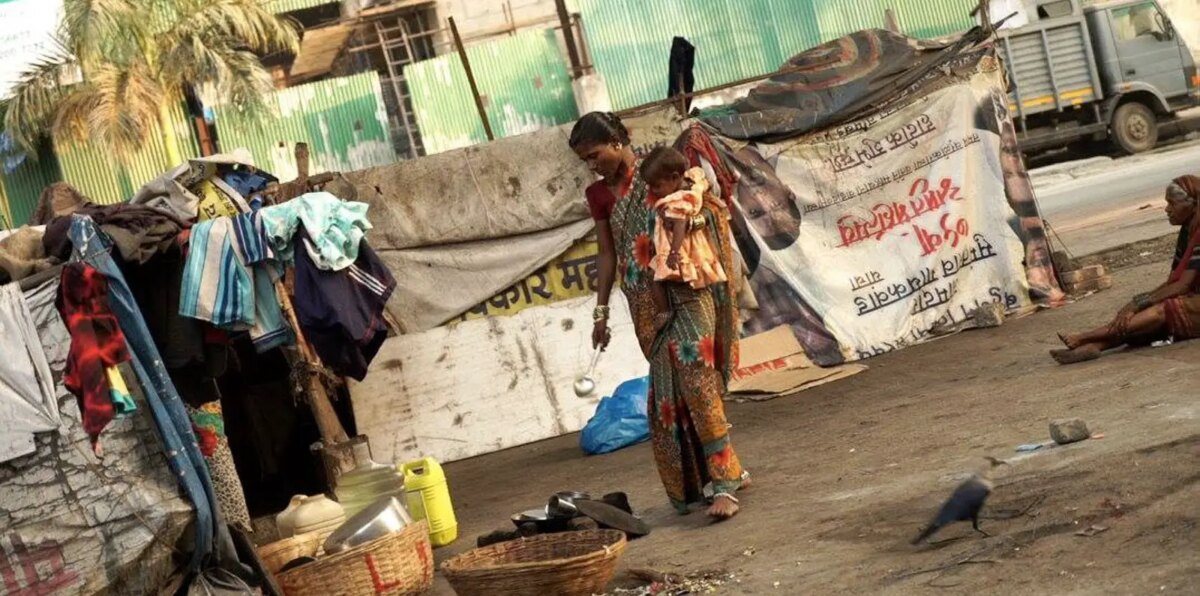
How do you solve the problem of poverty in the world? Don’t give up on this review just yet. The problem with many documentaries on this particular subject is that they offer a simple solution or a generalized criticism of some sort of -ism, like capitalism. David Albert Habif’s documentary, Still Human takes a broad, multi-layered approach to the problem with a message that we should hear and must hear…if for educational purposes only.
At its foundation, Habif tells the tale of two cities contrasting the wealth gap of Mumbai and Los Angeles. How can one city be home to the largest population of citizens living in poverty in Mumbai, while on the other hand, how can a first-world city like Los Angeles not only be a beacon of prosperity but also have the most significant disparity between the rich and poor amongst its citizens? Habif interviews several experts and academics on the subject of wealth disparity and social problems spanning the world. These experts include Ryan Navales, Wade Trimmer, David Rubin, M.D., Mark Ragins, M.D., Siddharth Sabharwal, Nikita Ketkar, and Daron Acemoglu (the author of Why Nations Fail).
The film’s first half is a lesson on governments and power, where Acemoglu lays out why some countries are prosperous, and others are not. The differences lie in extractive vs. inclusive governments. Simply put, extractive governments are run by elitists with a vested interest in keeping their power by keeping the common person uneducated and relegating them to unskilled labor. In return, power is passed from those in charge to the cronies to keep them in charge. Inclusive governments value citizens’ rights to participate in the political process in meaningful ways. Extractive governments fail/collapse under corruption and greed when the system encounters critical junctures such as wars, the death of leaders, technological advancement, and even global pandemics.
“At its foundation, Habif tells the tale of two cities contrasting the wealth gap of Mumbai and Los Angeles.”
The second half of Still Human takes to the streets of Los Angeles and the growing crises that threaten to topple not only L.A. but the rest of America. One crisis is homelessness and the growing cases of drug addictions and mental health issues such as schizophrenia. Then it gets worse from there as the documentary gets into unrest of race relations, low-quality education, the foster care system, rise in violence, and the disproportional prison population…just to name a few. These are problems staring right in our faces on the news, but it appears no one truly wants to solve these problems…taking us full circle back to elites who must keep the poor in poverty to maintain power.
Academic is probably the best way to describe the tone and presentation of Still Human. Look, I probably agree with about half of the conclusions of Habif’s documentary, which should say something about its academic approach to the subject of worldwide poverty. It’s a good thing that I don’t entirely agree or disagree with the documentary. That’s how engaging their presentation is on a very big and divisive problem. My little write-up of this film hardly scratches the surface of what is covered. There are no simple solutions. These solutions do not solely rest in the hands of our elected…or self-appointed leaders. We have to get involved in making the world a better place…involved beyond merely tweeting or voting.
Still Human is a political documentary that backs no particular political position or party. These problems were created by the right and left, and both parties have a vested interest in keeping us citizens off-balance and at each other’s throats. What Still Human ultimately does is shine the light on the truth of the problem. Whether you agree with anything presented in this documentary, you’ll be a better-informed person as a result. Without the truth, we as a society can not adequately address the problem. After all, we are all still human.
For screening information, visit the Still Human Facebook page.














